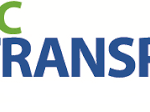Canada's G7 presidency a key opportunity for next prime minister
As the Government of Canada assumes the presidency of the G7 in 2025, a coalition of leading humanitarian, development, and advocacy agencies is urging Canada’s next Prime Minister to build on the momentum of past summits and secure renewed commitments to global education in order to combat rising inequality and extremism.
At the upcoming G7 Leaders’ Summit in Kananaskis, the next Prime Minister has a pivotal opportunity to build on Canada’s G7 legacy as a champion for the next generation, according to The Canadian International Education Policy Working Group (CIEPWG), a group spearheading a campaign of over 40 national and global organizations committed to improving education, peace, and security.
Canada has established a proven track-record driving impact at the G7 regardless of the political party in power:
- Under the Muskoka Initiative, Canada committed $2.85 billion over a five-year period, from 2010 to 2015. In 2014, Canada pledged an additional $3.5 billion at the Every Woman, Every Child Summit in Toronto to help shape the future of child and maternal health from 2015 to 2020 and secured US$5 billion in new and additional funding from G8 partners;
- The 2018 Charlevoix Initiative secured $3.2-billion in global commitments to help close the policy and funding gap in development-humanitarian responses, especially for refugees. Canada’s direct contribution of $400-million changed the course for more than four million out-of-school children and youth, particularly for girls and refugee and displaced learners.
However, with 222 million children and adolescents still denied their right to an education due to crises and disasters, the job is still far from over. With the funds from Canada’s last G7 Summit drawing to a close life-changing education projects are coming to an end, leaving millions of learners with an uncertain future. It is critical for Canada to rally global leaders to keep these children in school and expand access to quality education to counter-act rising extremism and secure long-term stability around the world.
“From Muskoka to Charlevoix, Canada has a well-earned reputation for getting things done on the global stage,” says Susan McIsaac, CEO of Right To Play International. “Those summits helped protect the lives and futures of millions of children and youth. But the work is not yet done. With this G7, Canada has a opportunity to meaningfully strengthen its role as a champion for the next generation, at a time when it is most needed. In an increasingly complex world, we must continue to invest in education as the best long-term solution for building a better future for this and future generations.”
“The global youth boom is here,” says Taryn Russell, Executive Director of Results Canada. “The number of people between the ages of 15-30 is expected to grow to 1.3 billion by 2030. Without access to an education young people, especially girls from low- and middle-income countries, won’t have the knowledge or skills they need to succeed, leaving them further behind. It’s this kind of marginalization that fuels inequalities and extremism. That’s why it’s so important that we raise our voices and advocate for education, because it expands healing, recovery, and opportunities for children in crises, contributing to long-term world peace and security for everyone.”
“Education is a lifeline,” says Fred Witteveen, CEO of Children Believe. “Access to education protects children from violence today, while giving them a chance to choose a better life tomorrow. Education saves lives. Canada has a proud tradition of peace-keeping, this is our chance for a true legacy of peace-building. The G7 presidency is an opportunity for Canada’s next Prime Minister to continue that fight for education on a global stage and prevent a lost generation of children.”
The Canadian International Education Policy Working Group is a coalition of international development, humanitarian, and advocacy organizations working to support policies and programs to improve access to safe, inclusive, quality education for all children and youth. It is currently co-Chaired by Right To Play International and Results Canada.
CIEPWG members are Aga Khan Foundation Canada, CAMFED, Canadian Commission for UNESCO, Canadian Feed the Children, Canadian Teachers Federation, Canadian Lutheran World Relief, Children Believe, CODE, Egale, Fondation Paul Gérin-Lajoie, Global Citizen, Grandmothers Advocacy Network (GRAN), Plan International Canada, Refugee Education Council, Results Canada, Right To Play International, Save the Children Canada, SOS Children’s Villages, War Child Canada, UNICEF Canada, World Vision Canada, and World University Service of Canada.


























Comments